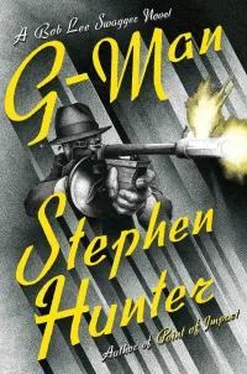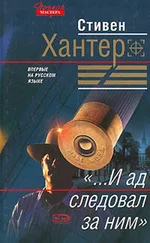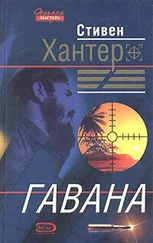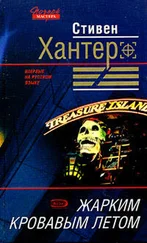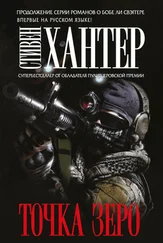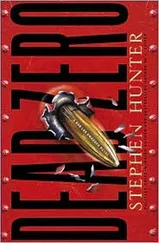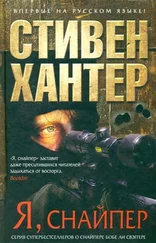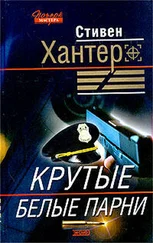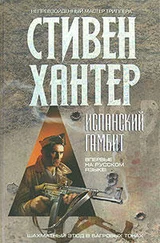Стивен Хантер - G-Man
Здесь есть возможность читать онлайн «Стивен Хантер - G-Man» весь текст электронной книги совершенно бесплатно (целиком полную версию без сокращений). В некоторых случаях можно слушать аудио, скачать через торрент в формате fb2 и присутствует краткое содержание. Жанр: Старинная литература, на английском языке. Описание произведения, (предисловие) а так же отзывы посетителей доступны на портале библиотеки ЛибКат.
- Название:G-Man
- Автор:
- Жанр:
- Год:неизвестен
- ISBN:нет данных
- Рейтинг книги:3 / 5. Голосов: 1
-
Избранное:Добавить в избранное
- Отзывы:
-
Ваша оценка:
- 60
- 1
- 2
- 3
- 4
- 5
G-Man: краткое содержание, описание и аннотация
Предлагаем к чтению аннотацию, описание, краткое содержание или предисловие (зависит от того, что написал сам автор книги «G-Man»). Если вы не нашли необходимую информацию о книге — напишите в комментариях, мы постараемся отыскать её.
G-Man — читать онлайн бесплатно полную книгу (весь текст) целиком
Ниже представлен текст книги, разбитый по страницам. Система сохранения места последней прочитанной страницы, позволяет с удобством читать онлайн бесплатно книгу «G-Man», без необходимости каждый раз заново искать на чём Вы остановились. Поставьте закладку, и сможете в любой момент перейти на страницу, на которой закончили чтение.
Интервал:
Закладка:
Les grabbed two more Monitor mags out of the back, dumped the half-full one, and pushed a new one into the well.
“I’m going to finish these bastards,” he shouted. “Cover me, goddammit.”
He rose, the Monitor locked under his right arm, his right hand crushing the pistol grip, his left guiding the muzzle from the fore end, and began to walk toward the Hudson, squeezing out short bursts. He walked in a fury of hatred and fear, everything he was, or had dreamed of, expressed in the insane trudge into the guns of the Division, daring them to bring him down, not caring if they did, his mind crazy-bent on one goal, which was to kill. He walked, he walked, he felt three thumps as three hardballs hit him hard in the belly and chest but did not penetrate the steel that shielded his body from them. He walked, he walked, he fired, he walked, the shells flipped from the breach, the heavy bullets tore huge detonations of dirt and shredded grass skyward. He felt his legs light up in pure sting. He walked, he walked, he walked.
“He’s coming, Sam! Hit him, hit him, hit him! He’s coming!”
Sam slipped around the body of the car and saw the killer stomping furiously toward him, hat low, face red, bent over his automatic rifle in some kind of desperate concentration, and Sam got to him first. He put the wedge sight square in the middle of the chest and squeezed off a burst and knew that he’d hit with three dead-solid, perfect killing shots to the center of mass, but still the man came on, unperturbed by the death that had just eviscerated him.
Sam got back on target, this time leaning harder into the car for more support, clenching the gun to shoulder, and all his muscles tight against it, looking through the Lyman aperture at the front sight’s triangle, and squeezed off another burst, but at two rounds the gun went quiet.
What the hell?
He brought it down and realized he had no idea what to do. He banged hard at it with one hand, then pulled back on the bolt and it slid, perfectly and smoothly, locking back, and he looked into the breach that his move had opened and saw only emptiness where a cartridge should have been and realized, with horror, that the gun was empty and that he had no pistol and that—
It felt like he was kicked hard in the stomach twice, and a wave of dizziness crashed across him. The gun slipped from his grip, he tried to compensate for the spinning but he lurched forward, nose down, smelling the dirt and grass of Barrington.
Somehow, he found the strength to look up and saw the gunman twenty feet away, but having turned, now addressing Ed.
“Ed, Ed!” he called, not so much voice but heart, for he wanted nothing more than to protect the young man, but then it all went away and he blacked out.
Les saw the lawman go down, as by the application of a sudden bolt of energy his body moved by the velocity of what had struck him, not by anything he himself had done. He alchemized in a microsecond from alive and vital to sheer weight falling in obedience to gravity and hit ground, twitching. Les knew the man had taken two solid through the gut. He knew such hits had permanent results. He knew you didn’t come back from two Government .30s.
Another rage of bees tore at his legs, sending tendrils of angry pain through him. He turned and saw the other agent a few yards away, in mid-rush, as, having just abandoned his shotgun for empty, the man yanked on his pistol to bring it to bear.
But Les’s instincts had oriented the Monitor, and his instincts had motivated his trigger finger, and without willing or thinking, he felt the hydraulic spasms as the rifle fired four times in less than half a second, and one of the rounds smacked into the agent’s forehead, its force blowing his hat off as it cratered his face, which began to foam with blood. The man went down, hard and flat, stirred, rolled over, and then just lay still.
Suddenly it was quiet.
Suddenly it was over.
Les’s legs were on fire. The anesthetic of pure combat rage had abruptly quit and he felt the pain where he’d taken lead. He felt a dozen wounds, he felt the rush of blood, he felt steel clamps of hurt pinching hard, he felt the bones themselves crying to yield, to sag to earth, but he turned and yelled to J.P., then scanned for the approach of new enemies. Far off he could see people hidden behind stopped cars or peering around telephone poles, but no one wanted to enter the battlefield.
He limped to the Hudson, walked around it, and climbed in, dumping the heavy Colt Automatic Rifle in the passenger seat. The car was still running, as the driver had leapt from it at such a speed running for cover that he hadn’t switched off the ignition. Les dropped it into gear, legs still burning, and cranked the wheel, delivering the car in seconds to the Ford, which had been almost thoroughly eviscerated by the fight. It looked like it had been jackhammered by a crew of laborers. He pulled up next to it, stumbled out his own door, opened the rear door, and rolled in.
J.P. was on him in seconds.
“Load the guns and get us out of here.”
“How bad?”
“He had a shotgun. He put some buck in my legs, they hurt like hell, but I don’t think I’m bleeding out, and I couldn’t walk if he’d broken any bones.”
It took J.P. thirty seconds to toss the Thompson in, then he was behind the wheel and the car was in motion.
“Do you see Helen?” Les moaned from the backseat.
“No, I— Oh, wait. Jesus Christ, yes, here she is.”
Helen ran toward them as J.P. halted. She jumped in, screaming, “Oh god, baby, are you all right?” and J.P. punched it, the tires spinning on the grass, bucked to the pavement, and took off down Northwest Highway.
“Christ, it hurts,” Les was saying.
“It’s all right, baby,” said Helen.
CHAPTER 60
THE OUACHITAS
ARKANSAS
The present
There was no doubt about authenticity. The handwritten manuscript was spread over several stocks of old, old paper, dry as bone, delicate to the touch, a total of one hundred and fifty-one pages, all in the same hand, a big, looping, semi-literate cursive. None of it was written in ballpoint. You could track as the pencils, some blue, some red, some plain lead, wore to nub against the pressure of an eighty-year-old man’s rush of memories. It bore the title, handwritten in clumsy capitals, “THEY CALLED HIM BABY FACE!”
J.P. was no writer. His prose was barely serviceable, riddled with cliches and other forms of staleness, tripe, and banality. He frequently misspelled, had much trouble with tenses, and that American bugaboo: the mysterious apostrophe. But he wrote with energy, directness, and without any literary attributes, such as irony, sarcasm, archness, coyness. He just was racing death to get it all down. He almost made it.
But when they read the account, something almost magical occurred. In spite of its crudity, each man saw it as J.P. saw it — as if when the narrative intensified, J.P. became more of a writer, and pure memory elevated his prose — and by their need to know.
Nick put down the last page of his account of the battle. They sat at a dilapidated picnic table not far from the ruins of the cottage. It was sunny and quiet in the high woods, under a blue sky, where the mayhem just described was a million miles and eighty-three years away. Rawley had fetched the first chunk, stashed a few hundred meters away, while Braxton, still flex-cuffed but patient and obliging, played the hostage.
“Good reading, huh, boys?” he called, noting the completion.
They ignored him.
“No doubt those two guys were brave,” said Nick, “but they were so overmatched.”
“I’d hate to think of the rage Charles must have felt,” Bob said. “He could have handled Nelson and Chase, but he wasn’t there. Christ, the anger he must have felt.”
Читать дальшеИнтервал:
Закладка:
Похожие книги на «G-Man»
Представляем Вашему вниманию похожие книги на «G-Man» списком для выбора. Мы отобрали схожую по названию и смыслу литературу в надежде предоставить читателям больше вариантов отыскать новые, интересные, ещё непрочитанные произведения.
Обсуждение, отзывы о книге «G-Man» и просто собственные мнения читателей. Оставьте ваши комментарии, напишите, что Вы думаете о произведении, его смысле или главных героях. Укажите что конкретно понравилось, а что нет, и почему Вы так считаете.
